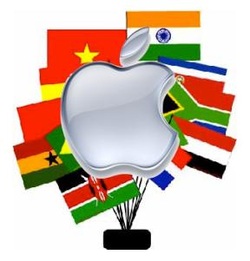
- Lower prices: This will kill Apple's brand and profits.
- Create a lower-end product: Will people want something less than the real thing? Probably not. They will just by a fake one.
- Make purchasing easier: Maintains the brand and value, while increasing accessibility and maintaining the aura of aspirational ownership.
Apple has smartly chosen to not lower the brand value and instead made purchasing its products more accessible.
In January 2013, Apple launched installment payment plans for buyers of iPhones and MacBook laptops in China. Payments on purchases costing from 300 yuan ($48) to 30,000 yuan made via the company’s Chinese website can be spread over as long as two years, according to the site. The plan, which requires a China Merchants Bank Co. credit card, has fees ranging from zero to 8.5 percent. Apple will let buyers split payments into 3, 6, 12, 18 or 24 installments. Some installment plans carry no interest. An interest of 6.5% is charged for 18 installments, and 8.5% for 24 installments.
In February 2013, , Apple launched a similar installment payment plan in India.
This strategy is being rolled out to other markets like the U.S., Brazil and Singapore.
Apple was never going to maintain is dominant market share in revenue or unit sales in the smartphone market as competitors entered this space with lower-end and lower--priced devices. Apple can take comfort in the fact it is able to maintain its dominant market share for smartphone industry profits. Apple's pricing strategy allows it to compete more on price without actually doing so, and in the process maintain its brand image/value, and profit model.
Sources:
- "Apple Lets Buyers on China Web Pay in 2-Year Installments", Bloomberg, January 16, 2013
http://www.bloomberg.com/news/2013-01-16/apple-lets-buyers-on-china-website-pay-in-two-year-installments.html - "Apple signals emerging-market rethink with India push", Reuters, February 25, 2013.
http://in.reuters.com/article/2013/02/25/apple-india-advertising-idINDEE91O01220130225
CKB Solutions is all about real solutions for the real world. To learn how we can help your business, contact Greg Kovacic in Hong Kong.


 RSS Feed
RSS Feed
